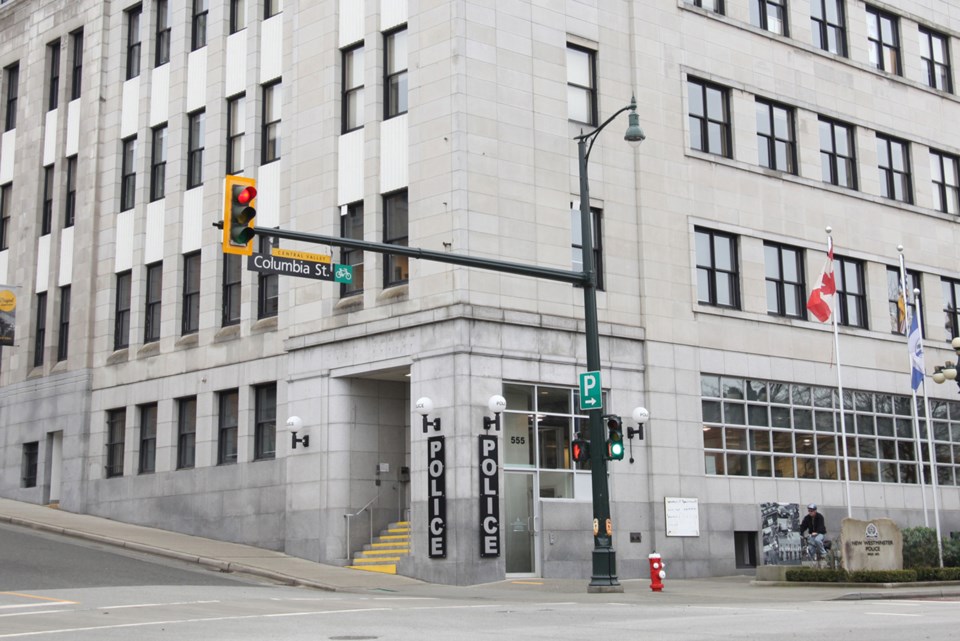New Westminster is rallying against a plan to download the cost of DNA analysis onto municipalities.
Coun. Chuck Puchmayr raised the issue of funding cuts to DNA services at the Dec. 7 council meeting, and suggested the city support the Union of B.C. Municipalities’ efforts to have the decision reversed. He said the cuts are another example of senior governments off-loading services onto police forces and cities.
Mayor Jonathan Cote, chair of the New Westminster Police Board, said the change in funding could be “very costly” to local governments.
“We estimate the impact in New Westminster could be an extra $40,000 or $50,000 a year,” he said. “Our other concern is DNA analysis is something that is becoming more and more frequent in police investigations. Although that may be the cost that we are looking at now, if it becomes an even greater role in terms of policing, our fear is it could be a cost that escalates.”
Cote also questions whether senior governments really want to be creating a scenario where police forces may not be investigating local crime activities because of budget pressures. He said they should be able to properly investigate cases without having to make decisions about whether they have funding in their budgets to do the DNA analysis.
“It’s been a tool that has increasingly become more effective and more useful in the work that the police do. I think it can be very effective,” he said of DNA analysis. “It’s also very good if you’ve got some analysis of a suspect that you can tie it to maybe an incident that happened 10 years ago, whereas that ability hasn’t always existed in the past. Even cold cases have been reopened because of analysis that shows up.”
Al Richmond, president of the Union of B.C. Municipalities, has written to B.C. Attorney General Suzanne Anton about the DNA analysis costs to local governments. He said $2.90 million in unexpected costs will be shifted onto municipalities with populations greater than 5,000 in 2016/17.
Because the federal government is downloading the cost onto provinces, and the province of B.C. is downloading the costs onto police forces, Cote said they’re both getting an earful from municipalities.
“The federal government has a national centre that does the DNA analysis. Local police forces all across the country have been able to utilize this resource. The federal government made a decision last year that they would not be subsidizing it in the way that they have in the past, and they would be passing on the cost,” Cote explained. “The provinces in the past also made a contribution to essentially pay for an unfunded portion of these costs, but what we’ve heard this year is the province of British Columbia is not going to increase their funding beyond what they normally fund every year. The increased costs, instead of being absorbed by the province, would then be passed on to municipal police forces.”
Richmond said the provincial and federal governments have an obligation to fund DNA analysis services, and it isn’t acceptable to shift the costs to local governments. Given the lack of rationale by the Ministry of Justice for its decision, he said the cost shift to local government is both unwarranted and unfair.
“I do know many other provinces when faced with this decision made the decision to take on the full cost and not pass it on,” Cote said. “I can’t confirm whether B.C. is the only one but I do know many other provinces have made the decision to not download this further to local governments.
New Westminster city council supports the Union of B.C. Municipalities’ request to have the province reverse the Ministry of Justice’s decision to pass along a portion of DNA analysis costs to local governments. The New Westminster Police Board has discussed the issue and will oppose the downloading of costs onto municipalities.
“I think there is going to be a unified response from local governments regarding this,” Cote said. “I think UBCM appears to be the channel that is being utilized to directly convey that message, both to the provincial government but also the federal government.”
Anton did not respond to the Record’s request for an interview, but forwarded a written statement about the DNA costs. In her statement , Anton said she understands why the UBCM and municipalities have concerns with the federal government’s decision and encourages them to raise those issue directly with the Government of Canada, but she didn’t comment on why B.C. isn’t absorbing all those costs as other provinces have done.
According to Anton, the province is making a “significant” contribution to help municipalities move to the new funding model imposed by the federal government. She said the province will continue to maintain its annual contribution of $1.3 million to help municipalities with DNA testing, but paid an additional $1.2 million in 2014/15 and will pay an additional $1.7 million this year for DNA series used by police in B.C.



